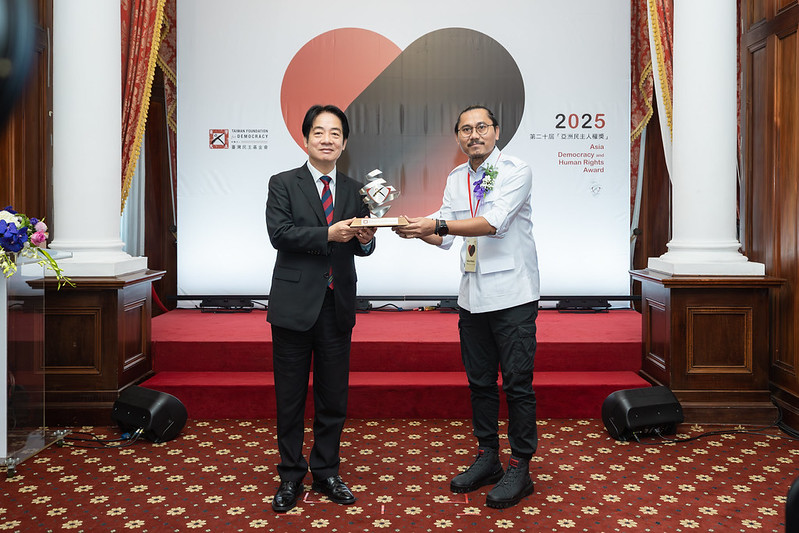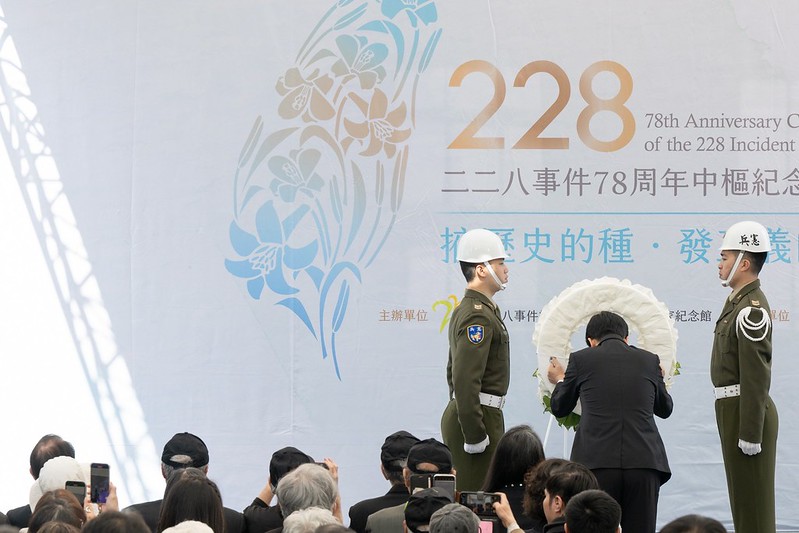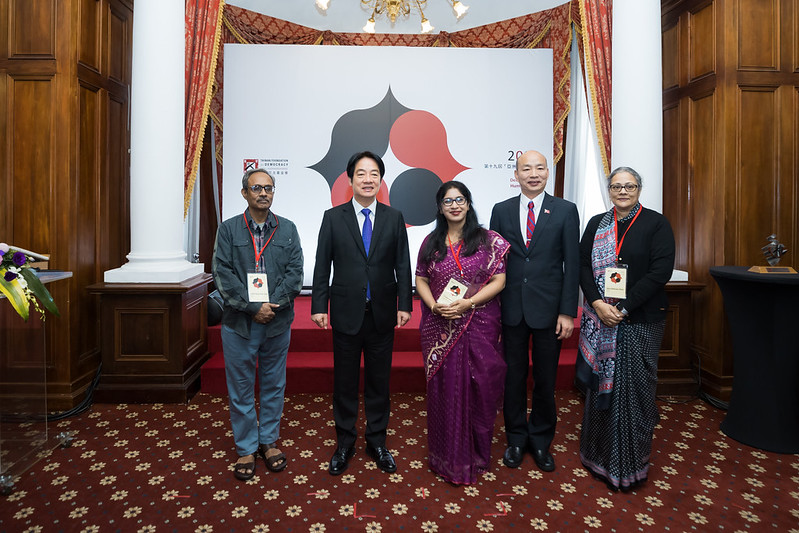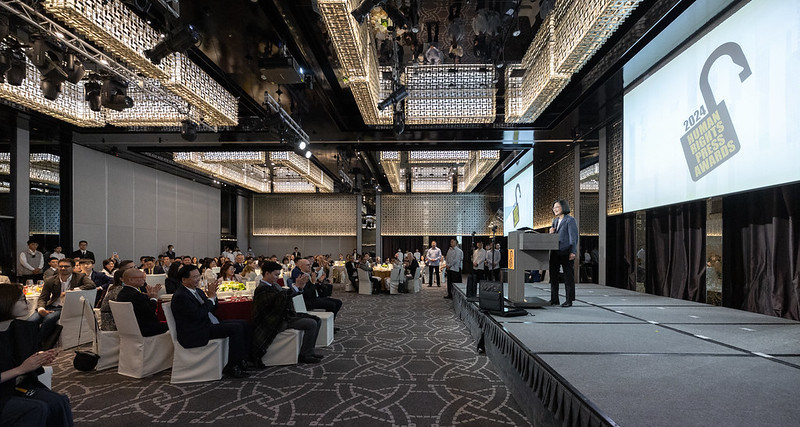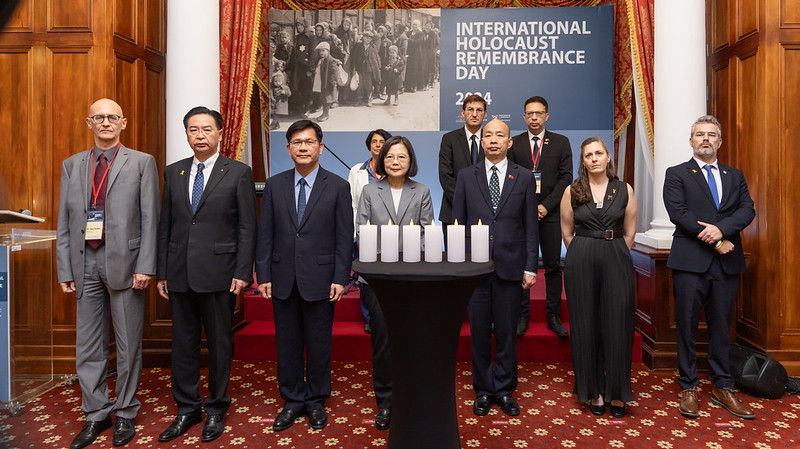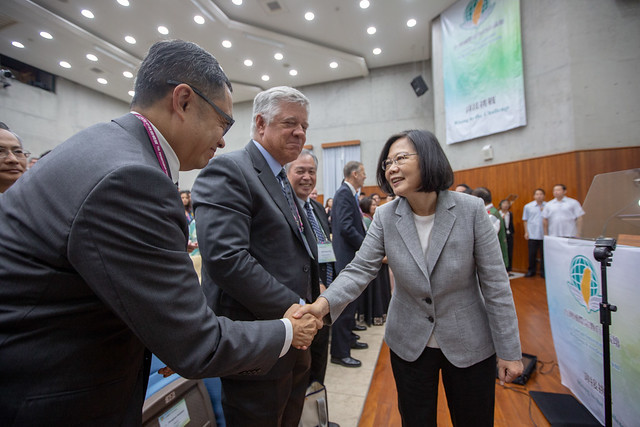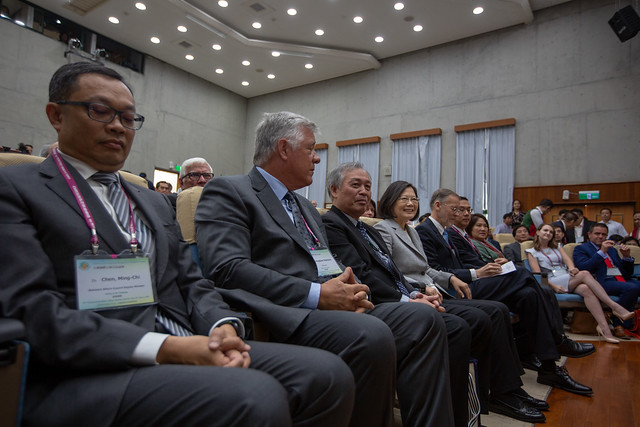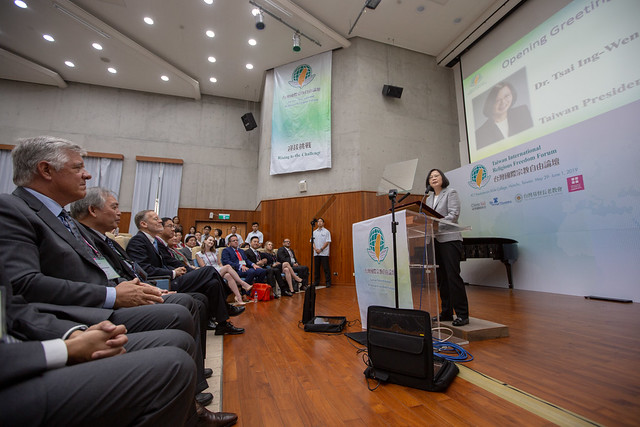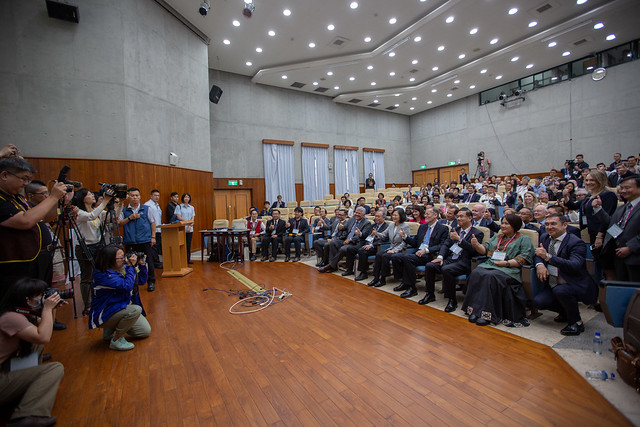News & activities
 News releases
News releases
President Tsai Ing-wen attended the Taiwan International Religious Freedom Forum in Hsinchu City on the morning of May 30. In remarks, she stated that accommodating diverse religious beliefs is essential for a democratic society and that Taiwan can do more to help our brothers and sisters around the world, regardless of their nationality or religious beliefs. She hopes that all of those who care about freedom, democracy, and peace can come to know each other better through dialogue and can work together to achieve global religious freedom.
A transcript of the president's remarks follows:
This past March, Taiwan and the United States held "A Civil Society Dialogue on Securing Religious Freedom in the Indo-Pacific Region." This event brought together representatives from more than 10 countries. And together, we took a stand for religious freedom in the Indo-Pacific.
But today's forum is an even more powerful testament to our role as a defender of religious freedom. It was organized by the Presbyterian Church in Taiwan, and other organizations that have decades of experience in fighting for human rights.
I can say with complete confidence that Taiwan's religious freedom sets the standard in the Indo-Pacific. But that was not always the case.
Taiwan walked a dark path on the road to religious freedom. The government of the time banned preaching in native languages other than Mandarin Chinese. Abuses of power led to the deportation and arrest of religious believers. And the Presbyterian Church in Taiwan may know this better than anyone else. They too suffered coercion at the hands of the authoritarian government.
The freedom we enjoy today is built on the blood, sweat, and tears of our predecessors. So we in Taiwan know better than anyone how precious freedom is.
Yet religious freedom remains restricted in places around the world. And different religions still struggle to coexist.
Recent reports by international media about conditions in China have also brought troubling news. Christian churches face suppression. Tibetan Buddhists have been placed under strict control. And Uighur Muslims are being sent to re-education camps as we speak. The international community must show its concern and speak out about these developments.
Taiwan is willing to share its experiences on the path to religious freedom with the rest of the world. We must use our morals and courage to stand with those who suffer religious oppression.
That is why this forum is so important. Our government will continue working with civic organizations to facilitate more international cooperation, so that we can create a truly inclusive and equal world, free from religious persecution.
As Taiwan's democratically elected president, I am certain that accommodating diverse religious beliefs is essential for a democratic society. And I believe Taiwan can do more to help our brothers and sisters around the world, regardless of their nationality or religious beliefs.
I want to welcome all of the religious and civic leaders here today. I also want to offer my deepest thanks to His Holiness the Dalai Lama and Ambassador Brownback. Although they could not be here today, their letters and videos will surely offer us different perspectives, and give us strength.
Religion teaches us that loving kindness counters anger. I truly hope that all of those who care about freedom, democracy, and peace can come to know each other better through dialogue. We can work together to achieve global religious freedom. Lastly, I want to wish you all a very successful forum. Thank you.
